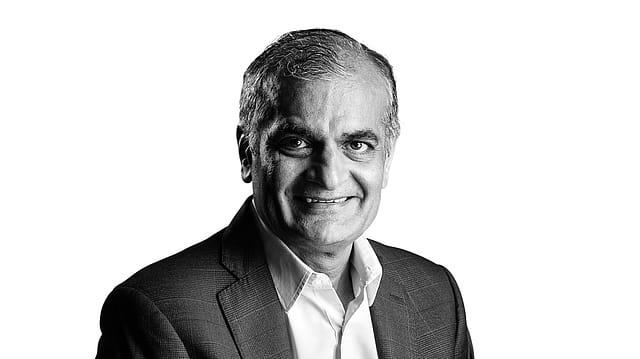Why Rashesh Shah of Edelweiss feels India will shrug off US tariff blues
ADVERTISEMENT

Amid rising trade tensions and fears of a potential tariff war, Edelweiss Financial Services chairman and managing director Rashesh Shah is urging calm. In a moment where rhetoric is loud and reactions are louder; Shah's perspective is strikingly measured. The numbers, he says, simply don’t justify the panic.
"The tariff impact is about $10–20 billion annually. For a $4 trillion economy like India, this isn’t earth-shattering,” Shah tells Fortune India. His analogy is telling: “It’s more a cold and a cough. It’s not cancer for the economy.”
That sentiment cuts through the noise of escalating anxiety around U.S. protectionism, especially following recent sharp statements by Trump on Indian and Russian economies. While the optics have caused discomfort—particularly with India also being lumped together with Pakistan in recent remarks—Shah believes it’s important to view the situation as geopolitical theatrics.
Short-Term Worries
Shah doesn’t take the provocative remarks at face value. “His comments saying that India's economy is dead is just a stance... I don't think we are living because we are able to export to US,” he says, brushing it off as bluster rather than substance.
India, he notes, is already navigating an economic slowdown. “The RBI has cut rates and injected liquidity, but it takes 3–4 quarters for that to filter through the system,” he says. “If tariffs add marginally to that slowdown, yes, it’s an additional weight to carry.”
The real worry, Shah says, lies not in trade data but in the deterioration of strategic alignments. “US-India needs to be allies geopolitically. If these moves raise doubts about that partnership, that’s where the bigger concern lies.”
Yet, even this may be posturing. Shah reads the tariff noise as part of a familiar pattern. “Threats are part of the negotiation playbook. This could be an added pressure tactic, because the India deal will be important for him and the fact that he has given so much importance to the India deal and he wanted the deal to be done by 31st of July,” says Shah. In that light, the hardline approach may be less about punishing India and more about speeding up dealmaking. “Now, anything we negotiate will only be an improvement on the current situation,” Shah adds.
Not All Sectors Vulnerable
According to Shah, the sectors feeling the pinch today are largely manufacturing-based. But India’s dominant export engines—IT and pharma—face a different set of challenges, and tariffs may not be their biggest threat.
“Software will not get hit by tariffs directly. But AI and the rise of Global Capability Centers are already reshaping the game,” Shah notes. “Global clients are no longer giving fat outsourcing contracts to big software firms—they’re setting up their own teams in India.”
The real shake-up in tech, then, isn’t tariff-driven at all. It’s structural.
As for pharma, Shah is cautious but not alarmed. “If they do something on pharma, the U.S. will be hurt the most. That’s a sector where interdependence is too deep.”
For now, Shah advises a watch-and-wait approach: “It will impact individual companies, yes but the economy as a whole will be able to absorb the shock.”